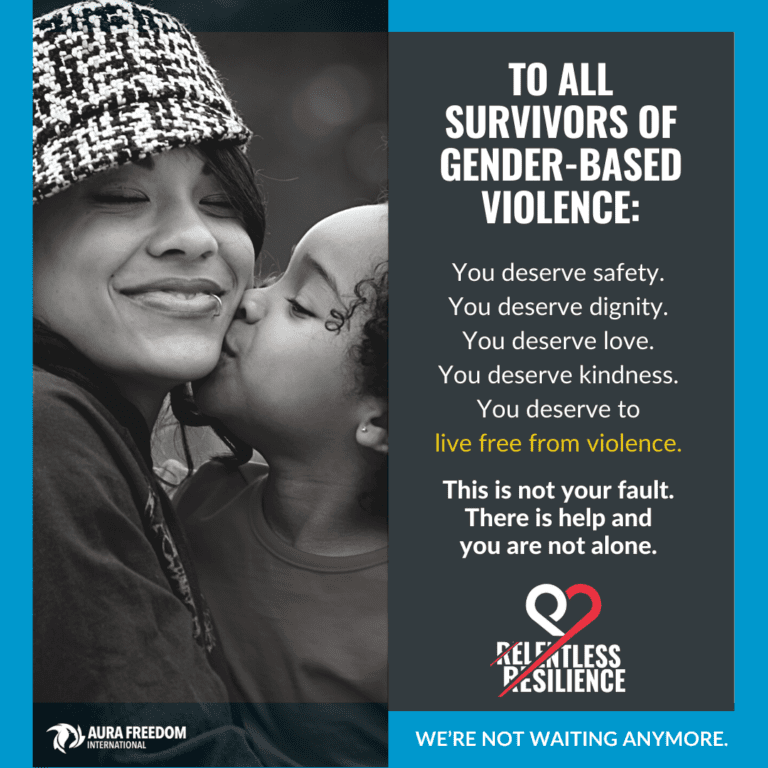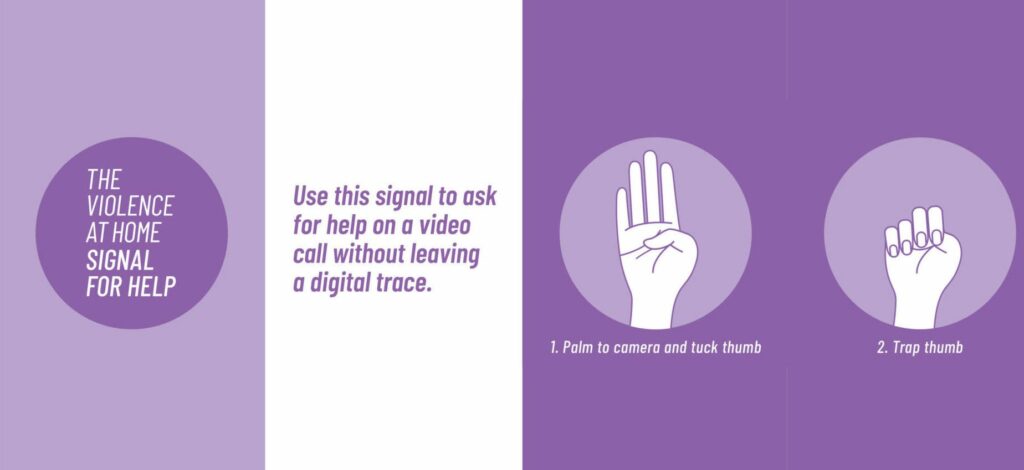Are you or someone you know
experiencing violence or exploitation?
Where to get help for those experiencing gender-based violence or exploitation in Toronto and Canada:
- Assaulted Women's Helpline (24/7) 1-866-863-0511 - awhl.org
- ShelterSafe - Clickable map of women's shelter - sheltersafe.ca
-
The Redwood (24/7) 416.533.8538 | TTY: 416.533.3736 |
Text: 647.370.8300 | Live Chat: iDetermine.ca - Toronto Rape Crisis Centre (24/7) 416.597.8808
- Ontario Network of Sexual Assault/Domestic Violence Centres www.sadvtreatmentcentres.ca/find-a-centre
- Talk4Healing Indigenous Women 1.855.554.4325 - talk4healing.com
- Native Women's Resource Centre of Toronto 416.963.9964, nwrct.ca
- Ligne FEMAIDE Pour Femmes Victimes de Violence (24/7): 1.877.336.2433 - ATS : 1.866.860.7082
- Senior Safety Line (24/7) 1.866.299.1011
- South Asian Legal Clinic of Ontario - Resources for South Asian women/Newcomers (forced marriage, domestic violence) - salc.on.ca
- Kid's Help Phone (24/7) 1.800.668.6868 or Text CONNECT to 686868
- LGBT Youthline (6-9pm) 1.800.268.9688 Text: 647.694.4275
- Trans Lifeline 1.877.330.6366 - translifeline.org
- Barbara Schlifer Clinic (legal support) 416.323.9149, schliferclinic.com
- Legal Aid Ontario Domestic Abuse Support (M-F, 8-5) 1.800.668.8258
If you are leaving a violent situation or preparing to leave a violent situation:
-
You are not alone and none of this is your fault.
- Your safety and the safety of your children is the #1 priority.
- Cover your tracks on all your devices, as they may be monitored.
- While you can't control your partner, you can create a Safety Plan to leave or to stay safer. Hide this safety plan from your partner.
-
You can find safety planning tips by clicking the pink buttons below.
- There are free resources and services in the community to support you in different ways: emergency shelter, food, counselling, help with making a safety plan, legal support, and more.
-
If you can, tell someone you trust about your situation so that you have support and someone to call.
Tips for reaching out to someone who may be experiencing violence or exploitation:
-
Listen with empathy and compassion. This is so important.
- Tell them they are not alone and there is help.
- Follow their lead and connect when they say it is safe - they know best.
- Be aware that their calls and devices may be monitored and be conscious of what you ask or say.
- Listen without judgement, without asking why they stay, and without criticism. Avoid self-serving questions that ask for personal details.
- Offer them community resources available and safety planning tips (see below) or offer to drop off food and other necessities if you are able to.
- Follow up at their convenience, even if you are eager to hear from them. Avoid becoming upset if they make decisions you don't understand.
If you are in immediate danger,
call 911
If someone is in immediate danger,
call 911
What is a safety plan?
A safety plan is a personalized, practical plan to improve your safety while experiencing abuse or preparing to leave an abusive situation. Whether you are living in a violent relationship, thinking about leaving a violent relationship, or have already left a violent relationship, there are several ways in which you can increase your safety and that of your children.
Creating a safety plan involves identifying action steps to increase safety and to prepare in advance for the possibility of further violence. Since abusive situations and risk factors can change quickly, it is recommended that you become familiar with and review and/or revise your safety plan regularly.
When possible, the best safety plans are those made with trauma counsellors and community healers who work with survivors of gender-based violence. Contact one of the numbers above for support.
Be sure to keep your safety plan in a safe location unknown to your partner.
we are grateful for the resources from these community partners below:
Safety planning for human trafficking / sexual exploitation survivors - see below
Safety Planning for Leaving Situations of Human Trafficking
If you’re considering leaving a situation of sexual exploitation / human trafficking, below are some tips to help keep you safe.
You can also call the National Human Trafficking Hotline at 1-833-900-1010 (24/7). If you are in immediate danger, call 911.
- Leave your phone behind! You can get another one. If you still have it, keep it turned off as your exploiter may be tracking you with GPS.
- Turn off/disable GPS on phone/tablet if you cannot get a new phone/sim.
- Block exploiter’s phone number and block your own phone number when making calls. Have your number unlisted and set an anonymous voicemail.
- Change your phone plan if someone has access to your account.
- Do not accept calls from private/unknown numbers.
- Stash money for emergencies and keep an emergency bag ready with essentials, ID, keys, documents, precious items, medications, etc.
- Take photos of your pieces of ID if you have access to them.
- Change passwords for bank accounts, emails, iCloud, etc. that your exploiters know or can find out.
- Let trusted friends/family know you are leaving your exploiter and show them a photo of what they look like.
- Give trusted friends/family a code word you can text during emergencies.
- Make a list of numbers/services/shelters/people you can contact in an emergency.
- Tell friends/family not to share your location, plans or contact info with anyone, especially your exploiter.
- Delete all social media accounts (Facebook, Instagram, etc.). Make new accounts if you want to stay on social media, but this is not encouraged.
- If you do stay on social media, limit what you share and make account settings private. Do not share your location on social media, and ask people you’re with to do the same.




